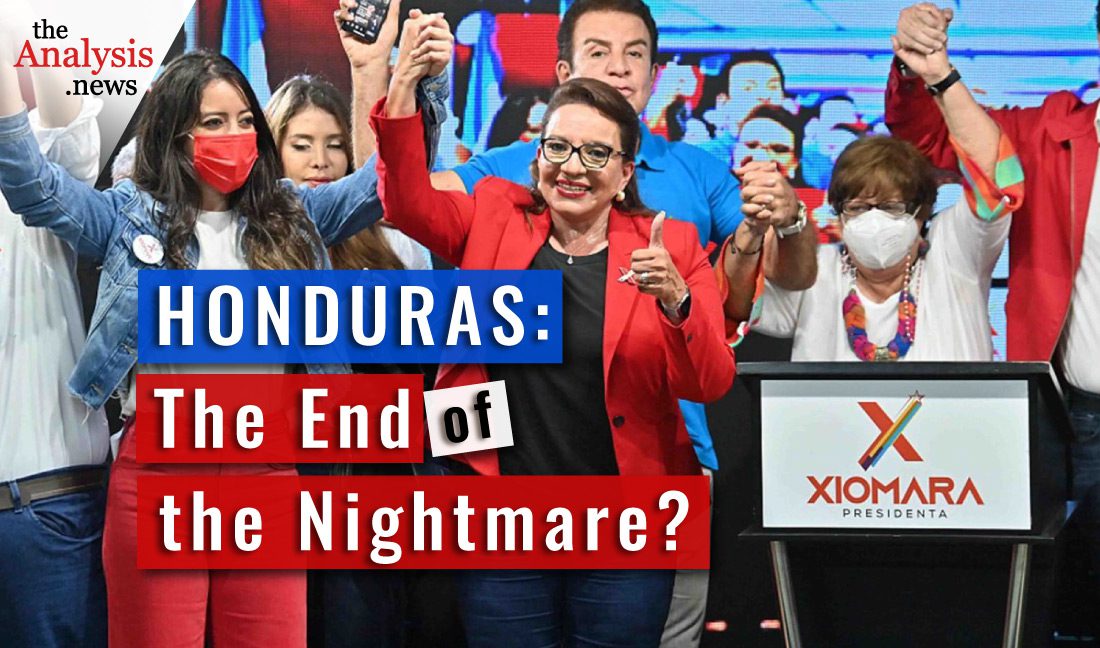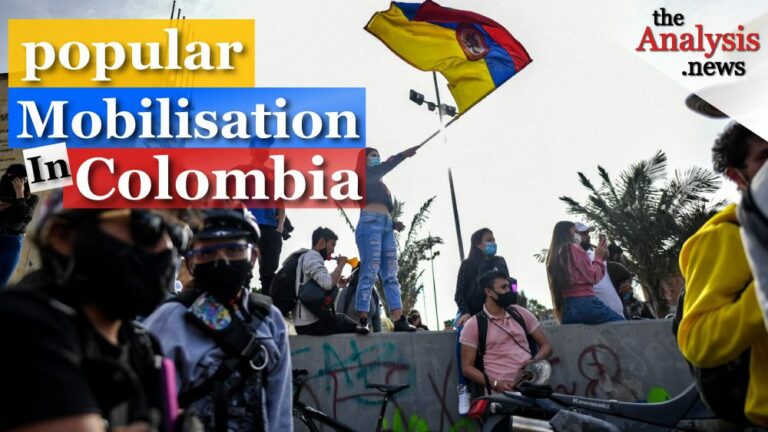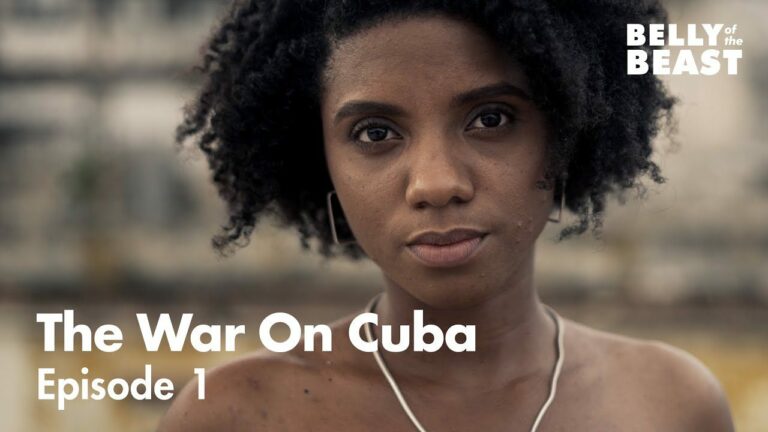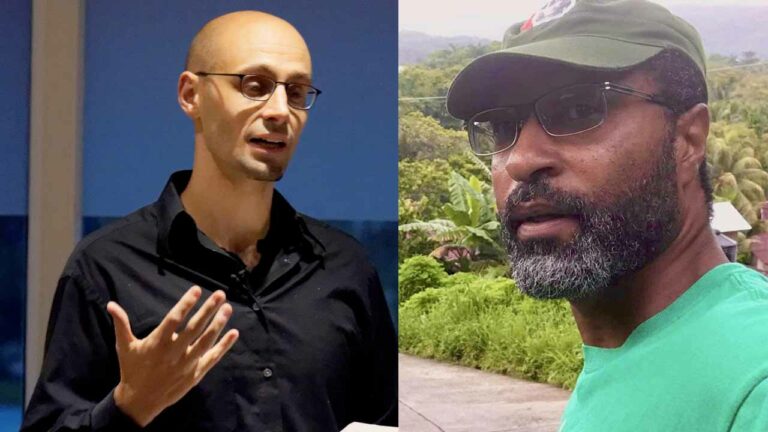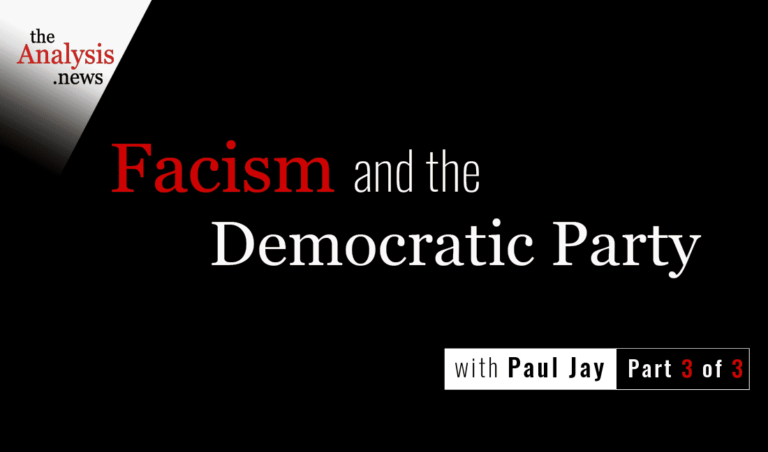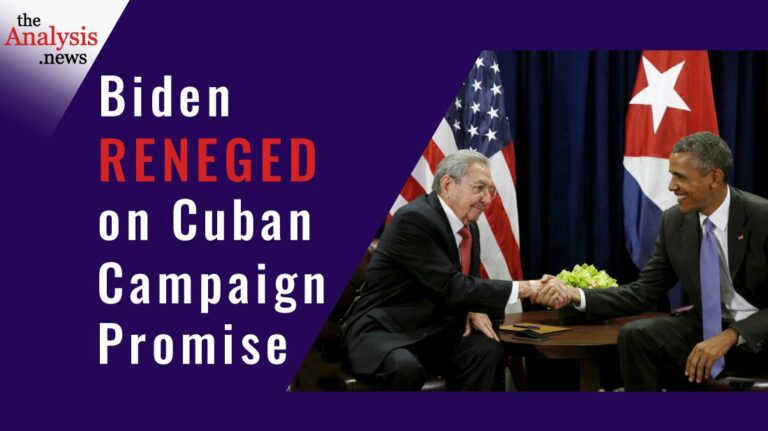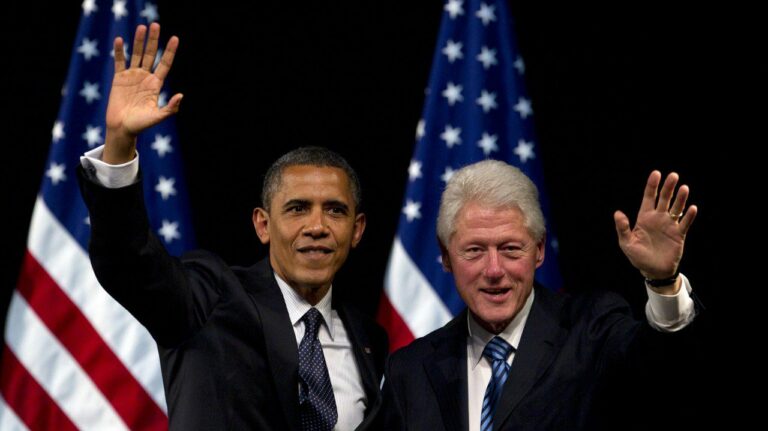Honduras: The End of the Nightmare?
The election of the leftist Xiomara Castro as Honduras’s first female president means a significant rupture with the country’s recent right-wing – even fascist – past, says Center for the Americas director Laura Carlsen. However, whether Castro will be allowed to actually govern is another question, given that the state is deeply embedded in corruption and drug trafficking.
TRANSCRIPT
Greg Wilpert
Welcome to theAnalysis.news. I’m Greg Wilpert. Last November 28, Hondurans elected Xiomara Castro, the first woman and a leftist to be President. She won with 51% of the vote and about 14 percentage points ahead of her closest rival from the right-wing National Party.
Xiomara Castro is the wife of Manuel Zelaya, who himself was President of Honduras until 2009 when he was ousted in a U.S.-supported military coup. Since that coup, for the past 12 years, Honduras has been governed by two right-wing presidents who have decimated the country’s social safety net and drowned it in corruption and narco-trafficking.
Joining me to analyze what this election means for Honduras is Laura Carlsen. She’s Director of the Mexico City-based America’s Program and Global Solidarity Coordinator at Just Associates, an international women’s organization. She joins me from Mexico City. Thank you, Laura, for being on theAnalysis.news again.
Laura Carlsen
Thanks, Greg. Always a pleasure.
Greg Wilpert
So looking at this election result and that she won with 14 percentage points ahead of the next candidate, how was it possible for Xiomara Castro and her Liberal Party to succeed this time around? In the last election in 2017, it appears that the election was quite clearly stolen from her party at that time and the candidate [Salvador] Nasralla.
Laura Carlsen
Well, it’s an interesting question, Greg, because, in any normal functioning democracy, we wouldn’t be asking, how is it possible for the person who got 14 points ahead in the vote count to actually be declared the winner? But it’s a very reasonable question in Honduras because of the number of elections that have been stolen, that have been rigged, and even, in fact, the complete rupture of any kind of constitutional order and rule of law with the 2009 coup in Honduras when her husband was ousted and exiled from the country.
The factors in this were, first of all, that she did have that much of a lead. When the early reports were coming in on the 28th, there was at about 8:30 in the night, and she had a 20 point margin. And so at that point, any plan to say she didn’t win, to have the systems fall, which is what they did in the past election. Any kind of plan like that kind of fell by the wayside. It would just absolutely have no credibility whatsoever, not nationally or internationally.
So the first was that strategy of if we’re going to win this vote and if we’re going to make it stick, we’ve got to have a supermajority. This is very similar to what we saw in Mexico when you’re trying to get rid of an authoritarian system in an electoral system that’s not organized or structured in your favor; in the favor of democracy. In many ways that’s been shaped to favor those authoritarian systems, you have to win by a lot in order for it not to be vulnerable to the kind of manipulation that we’ve seen so much in the past in Honduras.
So the first thing was that. And in order to do that, what she did was she got out the vote in a way that Honduras hasn’t seen in its contemporary history. Over 68% of people voted in this election, and that’s way above what it’s been in the past. And they did it. The United States press and government kind of likes to imply that this was just another one of those no-votes for a left-wing populist who was harvesting the discontent of a number of unfavorable factors like hurricanes, COVID, economic recession, and structural poverty.
But if you could see the way that people went out and vote, not just the numbers, but the attitude, there was a real sense that there was finally hope in a country that for 12 years, at least since the coup and actually many decades earlier, as many people in the United States know as well, has been suffering. Has been suffering way too much. And so now there’s an atmosphere of celebration in Honduras. There’s a real sense that things could change, and they haven’t had that for a long time.
Greg Wilpert
Now, Xiomara Castro is supposed to be inaugurated on January 27 of the coming year, but recent reports are indicating that the opposition-controlled Congress is passing last-minute laws to grant amnesty to individuals who served under the outgoing President, Juan Orlando Hernandez, and that is also passing a preemptive budget for 2022, which would hamstring her potentially. Now, given these actions, do you think that Xiomara Castro will be allowed to govern at all once she takes office? I mean, what do you think we can expect once she takes office.
Laura Carlsen
She will have a difficult road ahead. There’s no doubt about that. Because she had this level of popular support, and not only on the day of voting but because during the campaign, popular sectors were involved, they were influencing the campaign. Another factor in making the election seen and recognized, even without violence, because most people predicted violence in the electoral period because of what happened in the past. There were so many civilian elections and observations, but she will have a hard time because, as you say of the Congress. There’s a whole structure of laws that have been put into place Juan Orlando’s two regimes, that have been put into place specifically in order to create a concentration of power in the executive branch, which they now, of course, do not want to pass on to Xiomara Castro and to specifically protect the ruling elite.
The ruling political and economic elite that is highly corrupt, complicit with organized crime has been running the country as his private business. And so, she has to dismantle all this. And the Congress, what it’s doing now, is making that as difficult as possible. There are all kinds of rumors and then the initiatives that are even visible to practically leave the coffers empty when she takes office of a country that has a tremendous need, extreme poverty, still dealing with the pandemic, still dealing with the reconstruction, and this is not unexpected.
I think that there still is hope. I know that there is still hope, and I think that there’s still viability to her government. The ruling elite also knows that they could push the country into civil war and that that’s not going to benefit anyone. That what they actually have could be destroyed in that process as well. So they’re walking a fine line on that. I don’t think at this point that they’re actually banking on completely destroying any possibility of governance, and they may find international pushback.
Hopefully, they would find international pushback if that’s the strategy that they decided to take as well. The United States recognized— will get more specifically into the U.S. role, which is critical in this case. But we have to remember that the United States and all other countries recognize the results of this election. The National Party recognized the results of this election, which was the closest contender, with Xiomara’s 51.2% of the vote and Nasry Asfura’s 36.9% of the vote. So there’s a general sense that democracy functioned in this case.
So anything that you did to completely and obviously undermine that at this point has got to receive some resistance from a Democratic community, both within the country and outside. So my answer to that, and it’s an opinion because everybody’s watching closely, is that there will be very concentrated efforts to undermine her government every step of the way from inside and outside the country. But they won’t immediately push the nation into a civil war, which is what would happen if they completely destroyed any possibility of her governing.
Greg Wilpert
As I mentioned in the introduction, the [Barack] Obama administration back in 2009, under the leadership really of Secretary of State Hillary Clinton, ended up supporting the 2009 coup, even though they didn’t directly admit it. Actually, in Hillary Clinton’s memoirs, it was admitted at one point. So given that this role of the United States and also its military presence in Honduras, what do you think we can expect from the U.S. going forward with regard to the new President?
Laura Carlsen
Well, that’s right, Greg. First of all, it is worthwhile to look back at that history because I think it tells us something about possible responses to what’s happening now as well. First, you have an Obama government coming out and saying, no, we cannot accept a coup d’etat in the 21st century. We will do everything possible for the return of constitutional order in Honduras. And then you begin to see these manipulations, which actually prevented the return of the constitutionally elected President to Honduras and the return to the rule of law within the country.
They were in a nutshell— they’ve got this discourse saying that they oppose the coup, and at the same time, they bring the sides into negotiations. An extremely questionable move because it’s an illegitimate regime. It’s a military coup regime. What basis does it have to be negotiating with an elected President? And that wastes a bunch of time and, of course, goes nowhere. But in some senses, begins to try to legitimate the coup regime. And then they support elections that are structured and held by an illegitimate coup regime instead of demanding the return of the constitutionally elected President.
So now the history of it. There was a lot of debate about what the true stance of the United States government was at this time. But now the history has become very clear that there was support for perpetuating the coup regime and legitimating it through a false electoral process after the President, the elected President, was run out of the country by the military.
The reason I think it’s important to go over this one is that obviously Honduras has been marked by that every government after that has been related to that military coup regime and the illegitimacy that it spawned in the political system, but also because we may be seeing some similar types of reactions on the part of the U.S. government in the sense of saying one thing, we support democracy. We congratulate the Honduran people, which they did say, but there may also be kind of under the table moves to, in some senses, undermine the government that will have to be very wary and very much on the lookout for.
The other part is what’s of interest to the United States. There are a number of things. The government really did want to get rid of Juan Orlando and his group at this point. There seems to be evidence in that regard.
So, going back to your first question of how was she allowed to take office. One of the reasons was that the U.S. government had clearly made a decision and probably backed it in some way with both the outgoing and incoming governments to permit that to happen. That’s the role of hegemony, that hegemony plays still within these regions, and especially in a country like Honduras.
And the corruption charges against Juan Orlando and the move to authoritarianism were getting to a point where it was impossible within Congress and within the United States government to really support him for much longer and his group. So I think they began to consider Juan Orlando Hernández a liability and decided that also because of the instability that would result from stealing another election in Honduras, not to mention the bloodshed, which of course, has not been a major concern of U.S. foreign policy in the past. And probably wasn’t one of the major concerns this time either, but of course, it is to Hondurans themselves. But given those costs, I think there was a decision that that would be allowed.
Now, the interests that are involved for the U.S. include the war on drugs and the militarization of the region as a bastion of control. And that’s something that Joe Biden has worked on specifically since he was kind of the liaison to the region and regional policy under the Obama administration. The Pentagon is very keen on maintaining the armed forces presence within Honduran territory. While the new President has said that she would withdraw, the goal is to withdraw the armed first forces from domestic policing tasks and to gradually get rid of the militarized police force that Juan Orlando Hernández created, and that was responsible for the repression of local land battles and putting down the political protests after the fraud and the corruption scandals that have broken out in the past.
So there’s a contradiction of tension there between the presence that the Pentagon wants to maintain within the country. There’s also a tension between this new cold war that the Biden administration is building up with China. The President-elect has also said that she will recognize the People’s Republic of China and that they will create a far more diverse field of investment within the country, including Chinese investment. And so for this cold war, which is insane. But for this insane new cold war mentality that’s considered a loss of ground in some ways that they will be closely looking at and trying to prevent.
And then the third, I would say, is, of course, transnational and U.S.-based corporate investment in the country. What Juan Orlando Hernández did in his eight years in office is completely— his slogan was ‘Honduras Open for Business’. And to create these incentives at the cost of the common good, at the cost of natural resources that would benefit the country itself, for foreign investment to come in while the political and economic elite were taking their cut of it. As well as permitting drug trafficking activities within the country.
So now the Biden administration is talking about a $4 billion plan to invest in Central America, a big chunk of that in Honduras. And Kamala Harris, in her new role as the type of liaison that Joe Biden was under Obama, has announced a call to action for the private sector investment to increase investments there, by companies like Cargill, and Mastercard, and PepsiCo who have all signed on, anticipating the kinds of benefits that really end up violating labor rights and being economically destructive, end up displacing rural and Indigenous communities and increasing exploitation of women. So the same neoliberal model of investment that’s actually led to the out-migration, the forced migration, that is another one of the central issues that’s supposedly on the table.
So far, they have not talked about how the new elections will impact migration. They’ve talked about root causes, and yet when the Biden administration has talked about root causes, they’ve really overlooked how this form of development is actually an expulsion factor rather than a solution to why people are often forced to leave.
Greg Wilpert
So I want to return to that point in a moment, but first, I want to touch on something else that you mentioned, which is, of course, is the situation of corruption and drug trafficking in Honduras. As a matter of fact, I believe Juan Orlando Hernández’s brother was actually on trial in the United States for drug trafficking, and he pretty much implicated his brother, the President of Honduras. So that seems to be a huge element in terms of U.S. concern, or at least hypocrisy, on the one hand, trying to push this anti-drug agenda, but then propping up somebody like Juan Orlando Hernández. So I just wanted to know, what else can we say in terms of the extent to which drug trafficking plays a role in Honduran politics at the moment?
Laura Carlsen
Well, I don’t think you can underestimate it. I don’t think you can overstate it, basically, because it plays a role in so many different political relations, and it plays a role in the so-called legal economy as well. Again, it’s something that we’ve seen happen in Mexico and Honduras. In some ways, it’s been even worse with a smaller economy to control. And again, a history, or since the coup, at least of really permitting this kind of activity.
So what happened in the New York District Court is that Tony Hernández was sentenced to life for drug trafficking and money laundering. And during the trial, he actually admitted that there was evidence that Juan Orlando, that the money that was skimmed off these activities went into his current campaign. There’s also 300 million, reportedly from the national health system, that was diverted into his campaign as well.
So this is why that whole group became a liability or fell into disfavor, at least with the U.S. government, and they were no longer willing to support any type of fraud or manipulation to keep them in power. The degree of corruption had reached such a high point, and the degree of repression as well, of the Honduran people, that it was clear that it was a factor in the out-migration, which is seen as a problem by the Biden administration.
I would argue that migratory flows are not inherently problematic or certainly not a national security threat, but that’s the emphasis that they’ve taken when they talk about keeping people at home, which is a right to stay home in your own country without being forced out. And there was really no more room to be able to sustain a political and economic elite that was so highly corrupt.
Now, not only was Tony Hernández sentenced, there are a number of other members in the same court that have trials and have had trials. And there have been a lot of rumors that Juan Orlando could be tried himself within this court. So there’s a lot of speculation now about what’s going to happen to him and whether he’s going into exile to avoid charges or exactly how those legal charges against him and individuals within his government will be handled now.
Greg Wilpert
The other thing that I wanted to touch on is, like you mentioned already, about migration. What is it that is really causing people to migrate from Honduras at the moment? Basically, what is it like to be living in Honduras now, after 12 years of this rule of basically what amounted to a coup government?
Laura Carlsen
The poverty and the extreme poverty levels are among the highest in Latin America and the Caribbean. The pandemic hit when the health care system had basically been gutted. There were very strict confinement rules imposed by a government that, like so many in the world under the pandemic, took advantage of it to become even more authoritarian. The kinds of protests and mobilizations that we were seeing against the government, of course, were shut down. Movements found it difficult to move around, and yet criminalization of movements and resistances continued. It was one of the highest in the world in terms of the assassination of land and territory defenders and human rights defenders. One of the most backwards in terms of women’s rights and repression against women’s movements, which played a very large role in the election of Xiomara Castro.
So this poor country, historically one of the poorest, and then hit with these series of events since the coup and with this, to say bad government would be an understatement, has been suffering to the degree where it’s no longer livable.
Many of the people that we interview, the Hondurans that we interview here in Mexico as they come through, the stories have to do with the takeover of organized crime, with the complicity of security agents, in many cases. In most cases, death threats where they literally have to leave from one day to the other, an inability to survive, displacement because of the climate-related hurricanes that happened, displacement because of corporations coming down into rural communities and Indigenous lands. All of these are factors in the reasons that people leave, but what it comes down to is that they can no longer survive in their own country.
Greg Wilpert
Now, turning again to Xiomara Castro. One of the things that she promised when she was running for office, actually, was to rewrite the Honduran Constitution, which is also something that her husband promised back in 2000. He actually started the process in 2009 shortly before his overthrow and basically was one of the reasons probably for his overthrow. Do you think that Xiaomara will have a better chance of succeeding this time around? And if so, what does she hope a new Constitution would achieve for Honduras?
Laura Carlsen
Yes, I think she has a better chance of achieving that because of this high level of popular support and mobilization. And because the existing government and system were revealed to be so highly corrupt and dysfunctional at this point. I think she’s going to go slow on that one because we’ve already seen what a trigger it is to the Right. They know exactly what’s at stake.
What needs to be done in a constituent assembly, and even more so in Honduras than perhaps in the other countries where they’ve achieved it. First of all, they have to dismantle these authoritarian structures of impunity that were put into place in more recent years. And then, they have to look at an outdated Constitution that has engendered an increased inequality within the nation and left so many people in poverty and without the basic means of survival. This is a huge project, figuring out the mechanisms to do that, figuring out what are the points that would be prioritized under that. Women’s rights are a big priority for the current President and her backers as well.
There’s a whole range of issues that have to come into it. So it’s a long process. But I think she does have a better chance than they did in the past, and that the Right recognizes that and is scared of it. As I said, that’s why I think it will go a little bit more slowly, but it’s something that builds. Her base of support has to continue to be her base of support, which is to say, all these organizations that after boycotting previous elections because they knew how rigged the system was, said, okay, we’re going to get involved because we believe that there’s a chance here. That what we so greatly need and the demands that we’ve been putting forth from grassroots struggles for so many years can at least receive, if not, it’s not like they’re going to be promoted directly from the government, but they will at least not be repressed to this degree. They can receive a space, a little bit of breathing room for moving forward on the grassroots agendas. And so they got involved. And to the degree in which they continue to be involved, to the degree to which the President continues to keep her promises to these sectors and to really begin to make those structural changes, they’ll have enough strength to go forward to make those deeper structural changes formally and institutionally, which is what a constituent assembly implies.
Greg Wilpert
Now, finally, to conclude, I’m wondering if you could say a little bit about the significance is of this election? Not just for Honduras, but also more broadly, regionally speaking. And also, in light of the fact that Honduras was also the place, it really got a lot of attention back in 2016, when the environmental activist Berta Cáceres was murdered, brutally murdered. And now, this seems to be a significant change in what’s happened here. Do you have some thoughts about that?
Laura Carlsen
Well, we asked many land defenders directly. What does it mean to you to have a Xiomara Castro government? And that’s one of the first things that they say. It means that if we protest, maybe we won’t be shot and tear-gassed in the street. It means that we can continue to build our communities and fight back against the takeover by transnational corporations. Fight back against things like the ZEDES, which are the economic development zones that basically seed sovereignty within national territory to corporations that are exempt from national laws.
One of her other major commitments is to get rid of this figure, which has been criticized by the United Nations and by other international organisms as an outrageous way to seed natural resources and national resources to transnational corporations with virtually no benefits to the national population.
So they see a space again to move forward. What it means in terms of the geopolitics is at this stage of the game I’m reluctant to ever talk about pink tides or reactions anymore because it’s not even necessarily cyclical. It’s not even necessarily completely Left and Right. There are advantages to having more progressive governments. There’s no question about that within the continent, but I think that again, one of the major advantages is how much can you progress on those real grassroots agendas rather than how much will the government themselves change the politics when we start seeing it in this geopolitical Left, Right, Cold War framework. Even if we’re seeing it from the other side, we can really lose a lot of the nuance of what people struggles mean in these countries and in their individual national context.
So I think in Honduras, it’s the end to a long nightmare. As Dana Frank often says, an academic who has studied this deeply and as many people in Honduras actually feel it; it’s the beginning of hope and renewal of the exercise of citizenship with the idea that there’s a future because that’s why people migrate. They just don’t see a future. It sounds like an intangible reason, but it’s actually the deepest human reason there is for changing your situation, that you see no future for yourself or your children where you are. And this is a way that they can begin to see a future and the degree to which they work hand in hand. The government from the top and the grassroots movements from the bottom will really determine the power they have to make a lot of those changes.
Greg Wilpert
Okay, well, we’ll leave it there. I was speaking to Laura Carlsen, Director of the Mexico City-based America’s Program and Global Solidarity Coordinator at Just Associates. Thanks again, Laura, for having joined me today in providing this really good in-depth analysis.
Laura Carlsen
Thank you, Greg. I look forward to the next talk.
Greg Wilpert
And thank you to our listeners for tuning into theAnalysis.news. If you like our videos and podcasts, please make sure to visit theAnalysis.news website and make a donation. Also, don’t forget to subscribe to our YouTube channel.
END
Podcast: Play in new window | Download
